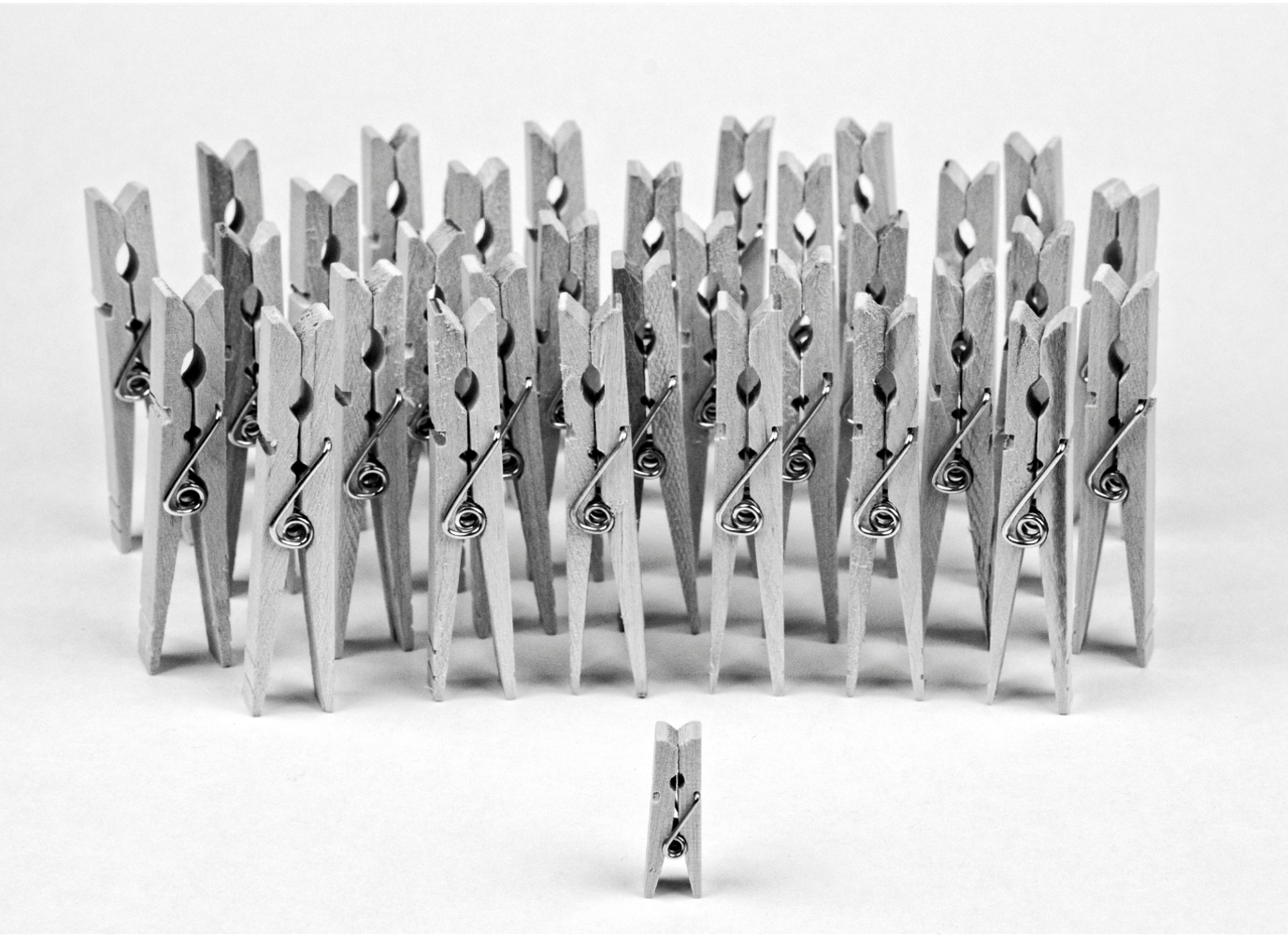Success Planning & Review, the value of the half-time team talk, life lessons from the beautiful game - workshop notes
INTRODUCTION
This workshop was delivered to a faith-based women's group, with little knowledge and interest in football. Notwithstanding. the feedback from the workshop was overwhelmingly positive, confirming that prior knowledge of the sport is not a prerequisite to meaningful engagement, and getting value from the Tactics Series.
Hi, my name is Tony Bryce. My manner and style with you in this workshop, is that of a football pundit (one who provides expert commentary on the game of football) & coach (one who trains players to raise their level of skill on the ball). Through the lens of the beautiful game, a reference to association football, called soccer in some countries, I provide commentary on the Game of life, and train and coach aspiring game-changers for impact on our spinning ball, starting with their own game. I know from personal experiences the pain and frustration of loss, under-achievement, being on the bench and not among the ones chosen, being small in stature and low in ability, and having to work overly hard, in the absence of a coach, to find my way and raise my game in order to participate and have more presence in the Game of life. If this is also your story, I hope I can be helpful to you.
As a student of life, a lover of learning, and a fan of the beautiful game, I have spent much of my personal and professional life accruing, practicing and teaching wisdom. Not just by reading the books and listening to the life insights of the great and the good, but by observing the Game of life, noticing, and paying attention. My Tactics, Wisdom from the Beautiful Game, World Series©, is one of the ways I help people have impact in the Game of life. See https://www.thetacticscoach.com/about-tactics
If football is of little interest to you, do not let this be a barrier to your engagement in this workshop. My reference to football is an analogy like the Parable of the Sower, and Paul the Apostle's reference to the Armour of God in Ephesians 6. Even though you may have little knowledge, or experience, or interest in agrarian life; what Roman Centurions wore in Paul’s day, or the world’s most popular support, there are important lessons to be learned from them if you are attentive. In my teaching and coaching practice I frequently use analogies like Jesus used stories and parables: I refer to everyday things to explain next level ideas. Those of you familiar with my Fitted and Furnished, the House God Built series, will know that I do something similar by referencing ideas from property development and interior design to remodel the rooms of our lives. See https://www.olive-branch.org.uk/fitted-and-furnished. Remember wisdom, the life insights behind the illustration, not the illustration itself, is the principal thing.
In this workshop, I walk you through the game planning and review processes used in football with a focus on the half time team talk. For those not familiar with the sport, after the first half of a game, about 45 minutes after the start, mid-way, each team has a 15-minute break; scheduled time away from active engagement in the game with their coach to essentially talk about the first 45 minutes and to plan for the next 45 minutes, the second half. However, before we get to the mid-way team talk, I begin with an overview of the pre-match game planning team talk.
In the game of football, the team has 5 opportunities to talk about the game with their manager/coach:
1. Days before the game, the next known encounter - what I am calling the pre-match game planning team and the associated training and coaching sessions
2. The uplifting, bonding, energising, motivational team talk just before the next game, the next encounter
3. Live, real time, immediate feedback during the game, from the touchline; while the game is in progress.
4. Mid-way, the fixed and scheduled half-time team talk, the focus of this workshop.
5. The post-match analysis, a detailed review of the game already played in readiness for the next encounter.
1) THE PRE-MATCH COACHING AND GAME PLANNING TEAM TALK
A few days from now you will inevitably have a meeting or an encounter; you will face a situation, a set of circumstances, perhaps a problem, a challenge or task, not necessarily difficult, though it could be, that you need to handle well in order to come away with the result you desire. Perhaps it's a conversation, an interview, a written piece, a keynote address, a journey, something you must undertake that you want to go well, that you do well to prepare for. It's not something that has been dropped on you unawares, it's something that you knew was coming, something expected that could be anticipated. That is what the pre-match game planning team talk and training and coaching sessions are for in the beautiful game: to plan, prepare and skill yourself up for what you know is coming, the event that is around the corner that requires your attention and focus.
The pre-match team talk is is not so much about motivating the players for the game, which could be 7 days away, it is about sharing knowledge from research of the game/the encounter ahead and to devise a plan, strategies, tactics, skills and resources towards the outcome/goal you want. It also includes gathering knowledge of the opposition, what you are up against, and how to counter and overcome. The pre-match game planning team talk is about identifying what is going to be required to achieve the result hoped for but not yet seen, and putting them in place. It's about forethought and preparation!
In your life, the pre-match game planning team talk and coaching sessions could look something like this:
- Naming particular things you certainly want to accomplish in your life: either this year or before the final whistle/the last breath that ends your contribution on our spinning ball.
- Coming up with an intelligent game plan to achieve the outcomes you want in the game, so that you do not just have desires and goals, but actions and attitudes towards them. It helps to begin by asking yourself, what do I want, and whether you have the required approach, knowledge, motivation, attitude, support, skills to achieve it. If not, you will need a way to acquire what is required for goal achievement.
- Put your plan on paper, make it visual, use pictures/drawings; talk it through; drill it in, practice it beforehand so you can execute in the game. (Though some are able to work from the intentions they have in mind, many find it helpful to capture some of that on paper, not every detail, but the key features).
- A plan based on current resources. Start with what you have and where you are and build from there. It’s not a problem if you are way off where you want to be. Don’t despise having to start small/ at the bottom of the league, the only way is up; you are on the move, soon you will have momentum.
- A plan that clearly identifies not just what you want (goals) but what you must do to obtain it, otherwise its a dream - grand ideas without relevant works.
- A plan based on your actions, not on things you don’t control, for example divine intervention or somebody gifting you a good opportunity and putting it on a plate for you.
- Strategies to counter expected opposition to goal achievement. There will be things within you and within your social world that have the power to disrupt your progress; to upset your plans. Self-doubt, fear of criticism, loss of motivation, fear of failure, and procrastination are some of the self-limiting beliefs and behaviours that need to be countered each time you move forward. Debt, set-backs, failure, and unsupportive colleagues and friends, are examples of social world obstacles.
- Training and coaching sessions to develop and practice the skills needed for the game. There's little value talking about what you must do if you don't know how to do it!
In addition to the tactics of the the Game of life, your attitude and emotional investment is hugely important. You must believe that the goal you have in mind is possible to achieve and worthwhile. Notwithstanding, you must also check your expectations, if you don’t think it’s possible, you will go out there expecting to lose. At the first set back, you will experience in your body and mind a replay of that old script from a previous disappointing game/encounter, “I knew this was not going to work, what was I thinking. I can't do this.” It helps if you are able to recall previous victories, battles won. If you have done your homework, you will be prepared for the inevitable challenges within the game, and not easily knocked off the ball.
Activity 1: identify a goal/s from the start of the year, some objective or desirable outcome that you wanted to accomplish by the end of 2021 that has not yet been achieved. Include a statement about where are you up to with it/them.
2) THE JUST BEFORE THE GAME MOTIVATIONAL TEAM TALK
The team talk just before the game is more of a motivational team talk and a reminder of the attitude and actions that were discussed and practiced at the game planning team talk and coaching sessions. The motivational team talk draws on the power of words and the energy generated by big physical movements to put the team in a positive mental state. Notwithstanding, it is not enough on its own without the game planning team talk, otherwise you have excitement without know how, which hastens frustration and discouragement! It's about mind and body motivation!
That concludes my overview of the 2 pre-match team talks. The first is instructional, the second is motivational.
Activity 2: working with your group, write down the content / key words of a pep talk you might give yourself just before embarking on some challenge. Describe how you would deliver the pep talk to yourself! Be prepared to share your ideas with the whole group!
Now on to opportunity #3, instructions during the game.
3) REAL TIME, REAL WORLD INSTRUCTIONS DURING THE GAME
While out there working your game plan in the real world several things could happen:
- You have a great plan and you are working it well; things are going to plan.
- You have a great plan, it’s just that you haven’t been working it, so it feels like it doesn’t work or it’s not going to work, when really you have not been working it!
- You are being frustrated in your attempts to work your plan; it’s not as easy or as straight-forward as you thought it was going to be.
Perhaps you underestimated the t/ask or had an early set-back that knocked you back. If so, don’t panic, you have time to turn it around, to get back on track, to adjust your playing style in response to developments and events in the game; to pull on your other resources; to up your game; to adjust your plan according to your reading of the game, to play your way back into the game after a mis-step or mishap.
Instruction during the game are opportunities to benefit from real time reproof, correction and instruction from the touchline from an animated/composed coach, who sees where you are leaking goals and seeks to address these with you. Not as someone who is against you, but as one who cares about your game, who kicks every ball with you, willing you to success. Real time feedback is required because for most situations, you can’t wait until you have a planned break at half time or for the end of the game before you receive feedback and further instruction about how its going, both might be too late. There's little value talking about something that has already gone wrong when it needn’t, had you addressed it earlier.
You may have seen football coaches on the touchline, being observant, shouting instructions, gesturing overtly, giving direction, getting emotional, becoming frustrated, celebrating wildly or sat with their hands on their head. The coach sees what the team is doing; what's not working and needs to change; what needs a different approach. They see gaps and weaknesses: where the team is being over-run and being taken advantage of and what it needs to do more/less of. They seek to lift the team's mood when they have had a set-back; when their heads have dropped. However, they provide more than motivation to encourage the heart, they provide education to inform the mind, so the team knows how to intelligently respond; how to turn things around before the game runs away with them, leaving them with a mountain to climb.
Recap: so you plan and prepare before a game (#1&2), and you make adjustment to plans during the game (#3) if required, and it will be required. If you have not prepared well, the reality can be starkly different from the theory - how you assumed it would go before you began.
Now to our main theme, the half-time team talk.
4) THE SCHEDULED HALF-TIME TEAM TALK
In the game of football after 45mins, the first half, each team has a planned break in the game for 15 mins to retreat with their coach to their dressing room for the half-time team talk. Dedicated time with their coach to briefly assess and review the team's first half performance and to plan for the next in that order. To fill gaps, to reinforce the game plan, or to change tact; to lift heads if results are not going their way, to ground people if they are feeling overconfident, because things are going their way; to issue instructions regarding next actions; to foster the attitude and energy they will need to have if they are to come away with the desired final result.
Some of these team talks have been describe as 'hair dryer treatments' - a torrent of forceful words from a passionate manager, a dressing down, but would also include encouragement, inspiration, instruction, correction and fighting talk. The half time team talk is not time to celebrate, even if the team have done very well, and look to have won this encounter; nor is it time for tears if the team has a mountain to climb and is staring defeat in the face. The game is not over, it's a game of 2 halves, and nor is your life, we still have time to change things around, as well as lose the momentum and the advantage we have.
After the half-time team talk, each team re-joins the game to implement what was said during the break. Instructions given during the break are not things you ignore, by doing your own thing. If things are to be better, we must do what is required, correct what was identified for correction, follow instruction, and accept any dressing room dressing down as helpful feedback for improvement.
The half time team talk is important because it is a chance to stop and listen, to review activity and progress, to mid-course correct so you remain on the right path. As players in the Game of life, we are prone to drift, to go off track, to lose our way, to change our minds when things get tough, to lose concentration; we forget what we are about and what we should be doing. We get distracted, we struggle with implementation, we get cold feet and need reminding, we go off the boil and need to re-envision; unexpected things happen that set us back that we need to respond to intelligently. There is new information and different ways to consider and act on. Because it's not working. We need to go back-to-back to basics, back to the plan.
Activity 3: Based on your performance in the first half of the year, I want you to do 2 things in the third person:
1. Assess and Review: write down what you need to say to yourself about your actions and attitudes during the first 6 months of 2021, read it to yourself so you hear yourself say it, avoiding the hair dryer approach mentioned above, forceful torrent of words aimed at you, unless you would find this approach the kind of kick in the pants you need to give yourself to get going!
2. Plan and Act: write down just 2 things you need to do to make the most of the second half of 2021 and follow through.
My example,
"Tony, you began 2021 at a fast pace, chasing down many new opportunities and avenues, as a result your game play has become complicated and you appear to be tiring. Now would be a good time to slow the game down, to take some time out, to think and plan for the second half of the year with singular focus.
Tony, there are gaps in how you have done the first half of the year that you need to fill in the second half. There are some important connections that were missing in the first half that you need to make in the second half of the year.
Tony, there are people in your life, people who make up the spine of your life, that you need to bring into the game that didn't get much of a look in, in the first half.
Tony you need to play out from the back and check in with body, mind and spirit, more frequently, if you are to end the year having made progress towards your 5 year goals, rather than frustrated and disappointed.”
5) POST-MATCH ANALYSIS
Note that the half-time team talk is only 15 minutes, it is brief. It is not a detailed analysis, but a mid-course assessment of the key things that are required for good results. At the half-way stage of the game, too much information and too many instructions overwhelms the mind, goes over our heads and is not heard. Detailed analyses come later, not during the game or immediately after the game, that’s too soon, heads are not able to hear sound analysis and good judgment when emotions are still running high, but afterwards, when we are in a better place in our heads to hear it.
Analyses of the detailed kind are discussed days before the next game, so that lessons can be learned, gaps filled, and skills practised, in readiness for the next encounter. At such time, we study the small margins and the results of our previous actions - the game data, not the fact of the final score - that the game was won, drawn or lost, but how, where and why the game was won, drawn or lost.
SUMMARY
In this workshop we have touched on the game planning and review process in the game of football, with emphasis on the half-time team talk. On 31st December 2021, at mid-night, the whistle to end 2021 and to start the next year of your life, the new season, will chime across the capital cities of our world. In that moment, what do you want the results of your
2021
season to be? Where will you be on your life's league table? Where you were, behind, or further on? What will you have learned from the 2021 season that might help you with your new season, 2022?
This is a good day for all of us to act on these things before 2021 runs away from us.
Tony
Tony Bryce
Series Creator & Head Coach
For information about how Tony could help you with your game, visit https://www.thetacticscoach.com/about-tactics






